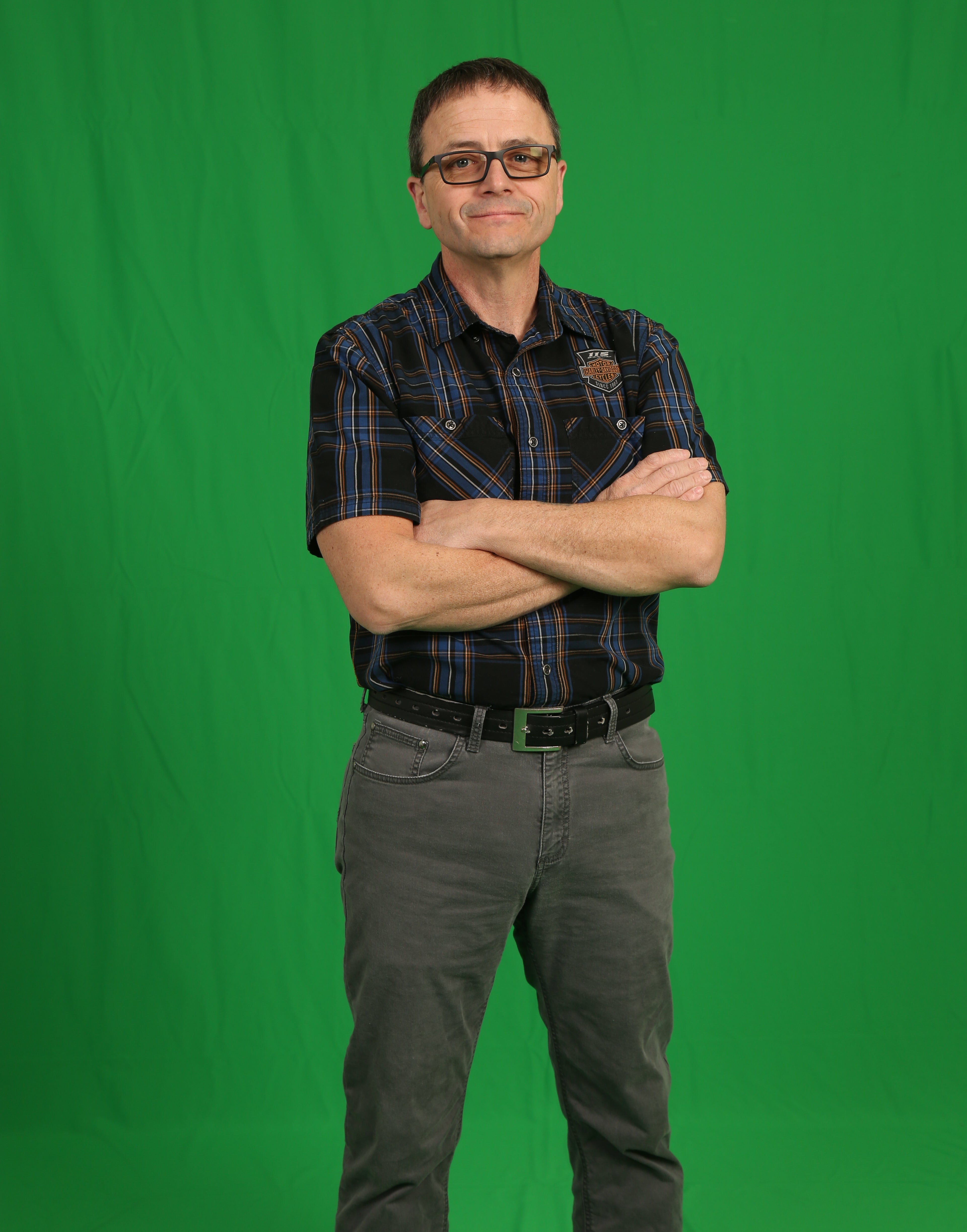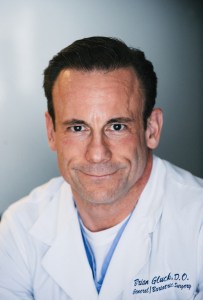Twelve Years and Counting!
April 28, 2019
By: Mary Ann Boyer
Categories: Bariatric Surgery & Weight Management
Patient Shares Keys to His Long-term Success with Bariatric Surgery
At 165 pounds, Marvin Dunbar, 52, is thrilled to be half the man he used to be.
That’s because he describes being morbidly obese like being in prison. “You’re looking out through your eyes but you can’t do what you want to do. Bariatric surgery opened up life for me. To this day, I carry my picture from ‘before’. I keep it at work too. People still can’t believe that’s me.”
At more than 300 pounds, Marvin was trapped in his overweight body, a condition he struggled with his entire life, except for his time in the Army. “As a child, I was referred to as ‘stocky’ or ‘husky,'” he said.
“I tried everything: low-carb diets, Weight Watchers and other diets that counted points. When I added it up, I had lost and gained three of me — over 900 pounds over the years! When I landed back at about 308 pounds, I gave up,” Marvin shared.
His Tipping Point
At age 32, Marvin was overweight and even had a heart issue. But his tipping point came that fall when he went to deer hunting camp.
On the first day of deer season it snowed, and Marvin got up before daylight and went alone to the place where he liked to hunt, which is a 35 to 40 minute walk from the camp.
“I woke up in the middle of the woods, passed out and covered in snow,” Marvin said. “I got up, picked up my rifle, walked back to my truck and drove home.” That was November 15, 2004.
“I knew there had to be something out there for me, or I wasn’t going to live long. I was sitting in Dr. Brian Gluck’s seminar the very next class.”
Marvin had plenty of red flags beyond his weight — co-morbidities — such as high cholesterol, high blood pressure, borderline diabetes, a heart issue and significant joint pain.
“I had a lovely wife, daughter and son. I was worried that I wouldn’t see my son graduate,” Marvin admitted.
He Did His Research
 “I didn’t end up at Dr. Gluck’s office because he offered a free seminar. I did my research. I chose Dr. Gluck because I looked at his success rates. He is the best, and his team is second to none,” Marvin asserted.
“I didn’t end up at Dr. Gluck’s office because he offered a free seminar. I did my research. I chose Dr. Gluck because I looked at his success rates. He is the best, and his team is second to none,” Marvin asserted.
Gluck’s team helped him understand that you have to make a commitment to follow through after surgery. “They taught me about my body and about the process it would be going through.”
Marvin had Roux-En-Y Gastric Bypass surgery, which restricts the amount of food he can eat. “To this day I don’t get hungry. I have to remind myself to eat.”
The Key to His Success

Long-term success following bariatric surgery is all about a patient’s mindset, Marin insists.
“You need to remember that surgery is a tool, it’s not a cure. Being obese is like being an alcoholic. It doesn’t go away. You have to stay with the program outlined by Dr. Gluck and his team.”
Identifying food triggers is key. “I had to figure out what my triggers were and what helps me to deal with them. For me, one trigger is carbohydrates, like breads and donuts. To this day, it’s that way. I am also a stress eater,” he explained.
“Marv knew early on that he had to stick with the program guidelines to maintain lifelong success. He has been a model patient with his compliance and mindset about the necessary lifestyle changes,” said Brian Gluck, DO, FACOS, FASMBS.
Marvin eats several small, high-protein meals a day. He doesn’t shy away from eating out, but when he does, he makes smart choices. “At a buffet, I go for the protein and a salad or vegetables. I eat slowly, and I always bring a doggie bag home.”
Encouraging Others
Marvin often speaks at Dr. Gluck’s bariatric seminars, which he says will help to remove any fears or barriers concerning surgery that potential bariatric patients may have. He is also a big fan of the entire bariatric team.
“Dr. Gluck’s team has been put together so carefully. They recognize each patient by name. They call you back if you need questions answered. Dr. Gluck and his team support their patients before and after surgery, such as his group that went to DUNEiversity.”
To support other bariatric patients, Marvin sometimes does the same two-week liquid fast at the same time that Dr. Gluck’s patients are doing it to prepare for surgery. “I often go up to the unit in the hospital to visit patients who have been through bariatric surgery to offer my encouragement to them too,” he said.
“We appreciate Marvin’s willingness to share his path and journey since he made the decision to have weight-loss surgery. He presents as a terrific example and a valuable resource/mentor for interested patients,” added Gluck.
In the future, Marvin believes that a support group would benefit patients. “It would be great to have a small support group with people who have been on the journey for years out and also include new people.”
Lasting Benefits
Marvin has always been active, and he walks a lot at work, but now he is out and about in news ways. For example, he has participated in bicycle races, with his best result being 50 miles in 3 hours.
Last summer, Marvin and his wife completed a roundtrip journey from Michigan to Yellowstone Park on his motorcycle. “Before surgery, I wouldn’t have been able to ride my Harley with my wife hundreds of miles each day like we did on that trip.”
He has also been rock climbing and bungee jumping, two activities that were out of reach before. Marvin also credits his weight loss for his ability to go on mission trips in Nicaragua.
Other benefits have been social and emotional. “You feel more attractive, and it boosts your ego for everything in life. I also have more energy. My life has improved a hundredfold.”



